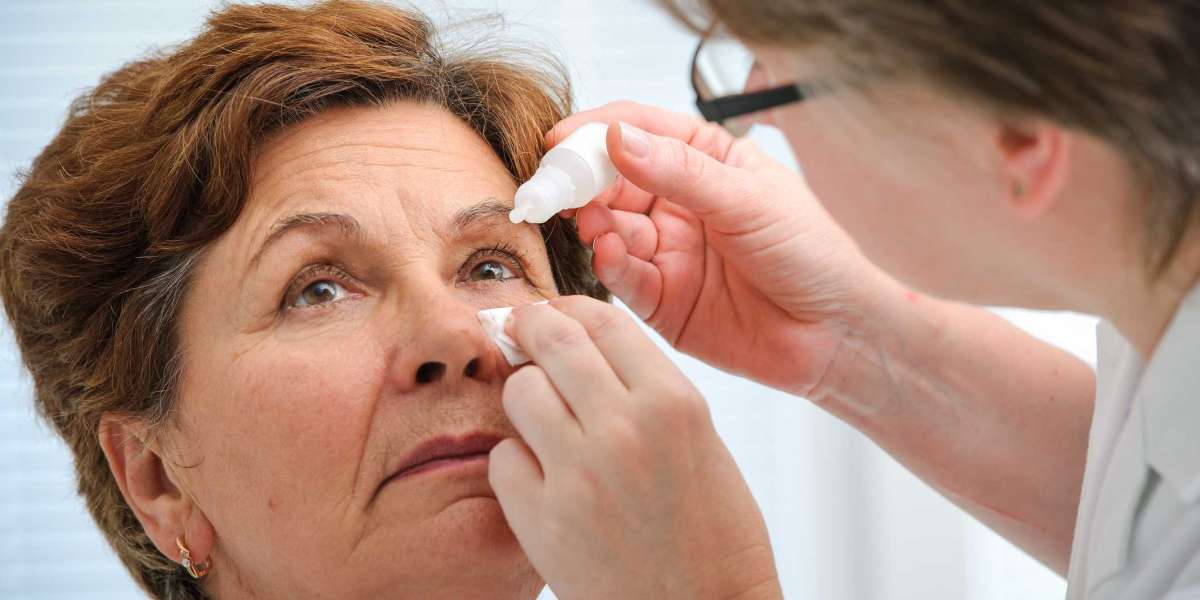Eye care for the elderly is something that everyone should think about as they grow older. It's no secret that our eyesight deteriorates as we grow older, whether this is due to genetics or is impacted by our everyday activities or our environment, and this is especially true for women. If you want to live a bright and active lifestyle, it is critical that you keep your eyesight sharp.
So, what can you do to ensure that your vision remains sharp? Actually, there is a lot more than you believe! A list of many senior eye care recommendations has been provided for your consideration.
1. Consume Nutritious Foods
It's possible that you've heard that some meals can help you see better. Yes, it is correct. Those high in vitamin C (kiwis, strawberries, red bell peppers, papayas, and oranges), as well as foods high in antioxidants, beta-carotene, and lutein (sweet potatoes, carrots, spinach, squash, broccoli, and kale), can lower your chances of developing age-related macular degeneration (AMD).
We propose that you incorporate these eye-friendly items into your diet in order to lower your risks and ensure that your eyes remain healthy for a long time.
2. Protect your eyes from the sun at all times.
The sun provides us with vitamin D, which we all require. When exposed to sunlight, however, you must wear sunglasses to protect your eyes. Direct sunlight may cause eye damage, as well as numerous malignancies and other health problems, among other things.
Wearing sunglasses to protect your eyes from direct sunshine should be a standard part of every traveler's kit. This will lower your risks and allow you to see more clearly. Additionally, if you use prescription eyeglasses, you should consider wearing a pair of prescription sunglasses to protect your eyes. You won't have to pick between seeing properly and shielding your eyes from the sun in this situation.
3. Make use of your corrective lenses.
For a reason, your prescription glasses and contact lenses have been given to you. Whatever your prescription eyewear needs, whether you are nearsighted or farsighted, you should always wear it in and out of the sun.
Not only can they aid with vision, but they also assist to minimize eye strain. When you aren't wearing them, your eyes have to work that much harder to maintain focus on the screen. This increased pressure on your eyes might cause them to get fatigued and can result in other visual disorders.
You have prescription glasses, yet your eyesight remains fuzzy while wearing them. It is possible that you will require a stronger prescription. Consider scheduling an appointment with your Optometrist to establish what is causing your foggy vision.
4. Make an appointment for regular eye exams.
Aging is an unavoidable reality of life, and it is fairly unusual to require prescription glasses for your eyes as you become older. However, when it comes to senior eye care, the majority of older people do not recognize they require glasses until their eyesight has deteriorated severely.
Scheduling regular yearly eye exams is one of the most effective strategies to keep your vision in good condition. If anything is wrong with your eyes, you may not always be aware of it, but by seeing your Optometrist on an annual basis, you have a far higher chance of catching any issues before they become serious.
The usual eye disorders associated with aging, such as cataracts, macular degeneration, glaucoma, and other degenerative eye illnesses, can be detected and treated by your optometrist. The fact that your eye exam can also show the start of other general health concerns, such as diabetes, hypertension, and excessive cholesterol, is not widely acknowledged by the general public.
All individuals with healthy eyes should get their eyes examined at least once a year. It is recommended that you schedule your eye exams more regularly if you suffer from an eye problem that requires monitoring.
5. Make Use of Plenty of Natural Light Indoors
Light is required by our eyes in order to process what we are seeing. Despite the fact that low-level mood lighting is ideal for a romantic supper, it can put a significant amount of strain on our eyes.
If you spend a lot of time watching television or reading inside, make sure your rooms are well-lit. This will assist your eyes in focusing and will significantly lessen eye strain.
6. Take a Break From Looking at the Computer.
If you spend a lot of time in front of the television or working on a computer, include regular breaks into your schedule. Every 20 minutes, you should take a 20-30 second break, according to our recommendations. This will give your eyes a chance to rest for a few moments.
7. Do some physical activity.
Taking a jog or riding an exercise bike can really help you see better, which may seem unusual at first glance. However, it is true. Exercise helps to enhance blood flow, which is an important senior eye care advice that many people overlook.
Blood flow will be increased as a result of this, increasing the quantity of oxygen that flows throughout your body, including your eyes, which can enhance the quality of your eyesight as well as eliminate toxins from your body. As you become older, any form of exercise is good. Walking, yoga, and other less difficult types of exercise may be included into your routine without being considered as a substitute for vigorous exercise.
Stopping smoking is number eight on the list.
Cigarette smoking has a negative impact on more than just your lungs, heart, and other organs. The poisons that smoking exposes you to potentially have an effect on your eyes as well.
If you're still smoking, you should seriously consider stopping the habit. You will notice a significant improvement in your health in a variety of ways.
Being proactive in one's senior eye care is essential to achieving success.
There are a variety of methods in which you might promote healthy elder eye care. Although aging is unavoidable, physical activity, a nutritious diet, and good lifestyle changes can help to keep your eyes healthy for a longer period of time.



